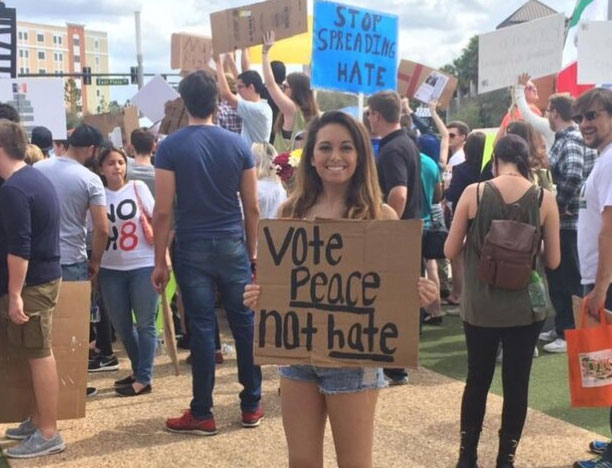| « How lies become facts and the world ends | Kiribati Has Benefitted from Abolishing Its Military » |
Peace Decides Elections
By David Swanson, World BEYOND War
The United States just held a presidential election between two pro-war, militarist candidates, each of whom could have been expected to shift yet more funding into war preparations, to arm the genocide in Palestine, and to wage and threaten war with abandon. And yet peace was, as it often is, a deciding factor.
Many voters demanding peace were otherwise inclined to vote for Kamala Harris. Had she simply committed to ceasing to illegally arm just one war, she probably would have won.
Many voters demanding peace squinted their eyes hard enough to see peace in Donald Trump. Had he not mixed peace along with war into his word salad, he probably would have lost.
A poll published in May suggested that voters in swing states would be significantly more likely to vote for then-candidate Biden were he to embargo arms to Israel. A second poll from August showed the same (minus Biden). A third poll from September showed the same (for Harris).
Peace is far from the only factor that swung this election, and many other elections. Numerous other obvious ways to win or lose could be examined. But it is interesting how resilient peace is as a determining factor no matter how little discussed by candidates and corporate pundits.
In 2020 Trump lost after refusing to end the war on Afghanistan to a Joe Biden promising to do so and pretending he hadn’t led the charge for the war on Iraq.
In 2016 a peace-preaching Trump beat out a Hillary Clinton popularly understood to be simply drooling for more wars. Polling in swing states showed that military families opposed to more wars from Clinton made the difference — as did many other factors, any one of which could easily have changed the result.
In 2012, as in 2008, Obama sold himself as a peace candidate, the facts notwithstanding, and he defeated pro-war candidates including, in 2008, the most pro-war candidate we’ve seen, John McCain.
In 2000 George W. Bush campaigned against “nation-building,” and the Supreme Court stole the election for him, but in 2004 he campaigned against a candidate in John Kerry who both supported and opposed Bush’s warmaking. Peace voters had no one to vote for.
In 2006, however, peace voters gave the Democrats both houses of Congress, with ending the war on Iraq the top motivation in exit polls. The Democrats immediately escalated the war on Iraq, sending peace advocates into the despair that opened them up to fantasizing about Obama two years later.
As you go back through the years of U.S. elections, peace is prominent. Kamala Harris pulled a Hubert Humphry, choosing loss over peace, but Humphry got there first. Nixon won pretending to be for peace, on the model of Lyndon Johnson and Woodrow Wilson and Franklin Roosevelt.
“Elect me for more wars” has never worked.
“Elect me for peace” has worked many times — including for many a warmonger.
If people could vote directly on public policy, the world would be a much more peaceful place.
-###-
Peace Decides Elections
https://worldbeyondwar.org/peace-decides-elections/
David Swanson is an author, activist, journalist, and radio host. He is executive director of WorldBeyondWar.org and campaign coordinator for RootsAction.org. Swanson's books include his latest: NATO What You Need to Know with Medea Benjamin. He blogs at DavidSwanson.org. He hosts Talk World Radio. He is a Nobel Peace Prize nominee, and U.S. Peace Prize recipient. Longer bio and photos and videos here. Follow him on Twitter: @davidcnswanson and FaceBook, and sign up for: Activist alerts or Articles.



